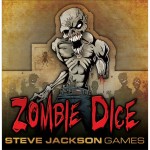Just the other day I was wondering, “Does anyone leave comments on my reviews over at Shakefire?” So I searched through and found that, as expected, most of the time the answer is “No.” Rarely, someone will leave a single comment either in agreement with or disagreement with my review, or some aspect of my review. For example, on a review I did of one of those baseball DVDs that compresses a whole season into a couple or three hours I said it was the best way for most people to watch baseball since baseball can be pretty boring. The comment was that people are missing out by not watching the entire season.
However, one review I did got a number of responses, and I thought I would, rather than reply there, reply here. The review in question was for the album Impulse by ERRA. The main fault of this album is that I hate the genre of growling/screaming music. Since this review, I’ve sorting things out with the guy who runs the site so that I don’t get these sorts of things to review. It’s actually in both our best interests – I don’t have to review something I hate and he doesn’t get a site full of low-grade reviews due to poor product/reviewer pairing. Anyway, the original review is here.
Admittedly, because I didn’t like the album, I went for sarcasm and humor in my review. Like most other reviews, it probably would have gone uncommented on. But someone went and posted a link to it on ERRA’s Facebook page’s wall. As expected, fans of the band didn’t like that I didn’t like the music, and posted comments.
Without further ado, the comments…
Im disappointed in both your review and the website’s decision to give you this album to review. You can’t compare the quality of an album where there are screaming vocals in it to something that doesn’t. It is a genre of music. And your reviews are supposed to inform people about the qualities and the downfalls of a record. Being a journalism major, and being someone who actually wants to write publicly about music, I am disgusted by this review, especially the last half. Pure garbage.
Being a journalism major, this guy probably has some high ideas about what journalism is. He wants to write publicly about music. He can. Blogs are free (which is why, in part, print media is dying). And as far as I can tell, assuming he’s one of the guys who also posted on Facebook, he does have a tumblr account, where my review apparently inspired him to write a review of the same album and give it a 5 out of 5 over a month ago, but hasn’t posted anything since. Allow me to impart a single piece of advice to you: a writer writes. If you really aspire to work as a writer, write, even if no one is paying you.
As for his claim that my reviews should inform people about the qualities and the downfalls of a records – I think I did: there is screaming, and that is the downfall of the record.
You don’t know what you are talking about.
Yes I do. Since I’m giving my opinion on the album, I am, in fact, the only person capable of knowing what I am talking about.
im laughing hard…..
ERRA FTW
I’m unsure of what is going on here. Is he laughing at my review (win!), the other comments, or just in general? He’s a fan of the band, so I think he’s with the other comments and laughing at me (not with me).
Did Shakefire pay you for review this? EY! WHOEVER HELL HIRED THIS GUY, CAN YOU HIRE ME TOO?
Nah, this review was epic. Epicly shitty. If you hate their screamer then you hate a lot of really good low-pitch screamers from hardcore/metal bands, no ?
Come on dude, chill the fuck out. They’re incredible.
Like with many review sites, no, Shakefire didn’t pay me. Well, they gave me a free copy of the album, which is dubious payment at best. They might hire you. Want to know how I got the job? The guy running Shakefire tweeted that he was looking for writers and I replied. Done. Which takes us back to the first guy… want to know how easy it is to get a “job” writing reviews? It’s that easy. Now, getting paid cash to write reviews… that’s another story. And to answer this guy’s question, yes, I hate a lot of screamers from hardcore/metal bands.
You should have gone against your instinct and given this album at the very least an “A.” You have admitted to letting your individual aversion to screaming cloud your review. I’ll chalk up the fact that you gave this an album “a big fat F” as being due to your hearing going progressively downhill since 1974. Listening to music with an objective ear is not a crime, Sir.
“at the very least an ‘A’.” Honestly, looking back and playing a few cuts from the album again (I didn’t delete it because seriously, what’s one album when you a terabyte of drive space?) I think, if I could ignore the screaming, I might give them a ‘B’ if I was being charitable. See, this isn’t a 7-9 scale. We (I) use the whole thing, from top to bottom. As for my hearing, it’s fine, except maybe a little worse after listening to this album from ERRA and the other screamer bands I’ve had to review. And listening to music with an objective ear isn’t a crime, but it also isn’t my job. I’m not teaching a music appreciation class, I’m reviewing, which is a broad spectrum of writing that includes my chosen take: giving my personal opinion of what I experience.
hahahahaha ur such a faggot dude. don’t review this kind of music if you don’t listen to the genre. Its like giving someone who listens to only rap, Carnifex’s new CD Until I Fell Nothing. which is NOTHING close to rap. and don’t say you are use to this genre cuz ur not just admit it. if you still believe you are, then ur mind is playing tricks on you.
I don’t really want to respond to a guy who uses “faggot” in this way, but he does have a small point which I addressed earlier. I don’t choose what to review, I’m assigned it. The boss sends me links by email or physical products in the mail which I experience and then review by the deadline assigned. We’ve cleared up some issues so that I’ll have less of a chance of getting stuff I am biased against, so in the future I won’t be reviewing bands like ERRA unless there is simply no one else to review them.
I give your review a -10 out of 10
So do I. Did you know that all reviews are scored only in Absolute Values? Thanks for the 10!
Seriously, though, when reading reviews or opinion pieces, it is important to approach it from the same direction the author did. One week in Entertainment Weekly, there was a column which I read and thought was hilarious. My wife read it and found it to be despicable. We discussed it, and while I had approached the article from a point of satire because I knew the history of the author’s satirical style, she had approached it as a serious piece, and since part of it was praising the awesomeness of the Twilight movies and how Bella Swan can teach us things, I understand why we had such different responses to the article. But then again, someone who loves Twilight and really does think Bella Swan is a great role model, reading the article in a satiric tone would be harsh.
And that’s what happened here. I listened to music for review that I have zero interest in because I don’t like it. So I took a humorous approach to my review with hints of scathing scorn for the genre. People who like the genre didn’t like my review. Only one of us devolved into name calling. Hint: it was the guys who used the words “faggot” and “douchebag”.
![]() It isn’t often that I get excited for a game before it releases. Well, unless that game has zombies in it. I’m always excited for zombie games. But I have been such a huge fan of Minecraft, and as a graduate of a Computer Science degree program when they still required us to know bit processing, registers, assembly and all that stuff that plenty of developers don’t concern themselves with, the announcement for Notch’s next game, called 0x10c, has me excited.
It isn’t often that I get excited for a game before it releases. Well, unless that game has zombies in it. I’m always excited for zombie games. But I have been such a huge fan of Minecraft, and as a graduate of a Computer Science degree program when they still required us to know bit processing, registers, assembly and all that stuff that plenty of developers don’t concern themselves with, the announcement for Notch’s next game, called 0x10c, has me excited.









